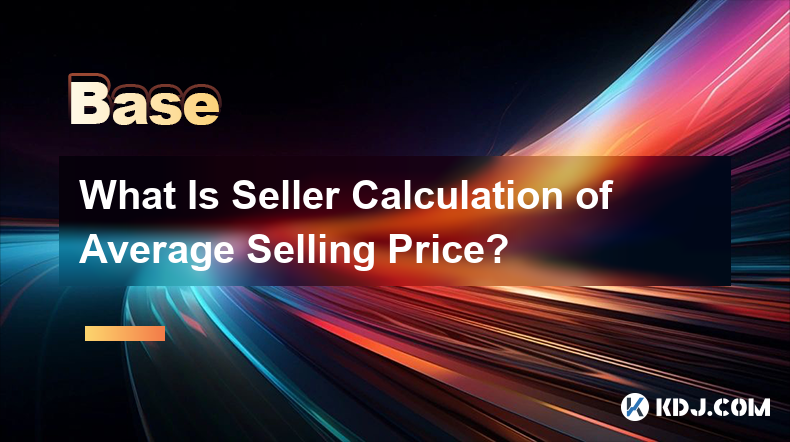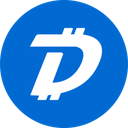-
 Bitcoin
Bitcoin $86,118.5168
0.31% -
 Ethereum
Ethereum $2,190.1419
3.11% -
 Tether USDt
Tether USDt $0.9998
0.04% -
 XRP
XRP $2.3308
-1.20% -
 BNB
BNB $589.8645
-0.63% -
 Solana
Solana $137.8220
-0.56% -
 USDC
USDC $0.9999
-0.02% -
 Cardano
Cardano $0.8089
-1.95% -
 Dogecoin
Dogecoin $0.1921
-2.64% -
 TRON
TRON $0.2427
-0.79% -
 Pi
Pi $1.6532
-7.63% -
 Chainlink
Chainlink $15.2059
-2.39% -
 Hedera
Hedera $0.2267
-1.61% -
 UNUS SED LEO
UNUS SED LEO $9.7780
-1.12% -
 Stellar
Stellar $0.2766
-1.20% -
 Avalanche
Avalanche $20.3871
3.02% -
 Sui
Sui $2.4925
-3.36% -
 Litecoin
Litecoin $101.7736
-2.14% -
 Bitcoin Cash
Bitcoin Cash $381.7519
-0.32% -
 Shiba Inu
Shiba Inu $0.0...01259
-3.30% -
 Toncoin
Toncoin $2.9488
-0.70% -
 Polkadot
Polkadot $4.2919
-1.23% -
 MANTRA
MANTRA $6.5697
-1.57% -
 Bitget Token
Bitget Token $4.6271
1.65% -
 Ethena USDe
Ethena USDe $0.9994
0.06% -
 Dai
Dai $1.0000
0.00% -
 Hyperliquid
Hyperliquid $15.3354
-0.69% -
 Uniswap
Uniswap $7.1153
1.58% -
 Monero
Monero $221.1795
1.94% -
 Aptos
Aptos $5.9630
-1.63%
What Is Seller Calculation of Average Selling Price?
Seller Calculation of Average Selling Price (ASP), a crucial metric in determining a product's profitability and price elasticity, is influenced by factors such as market dynamics, product quality, and marketing campaigns.
Dec 16, 2024 at 06:18 pm

Key Points:
- Overview of Seller Calculation of Average Selling Price (ASP)
- Methods for Calculating ASP
- Factors Influencing ASP
- Challenges and Limitations of ASP
- Best Practices for Accurate ASP Calculation
What is Seller Calculation of Average Selling Price (ASP)?
Seller Calculation of Average Selling Price (ASP) refers to the method used by sellers to determine the average revenue per unit of a product sold over a specified period. It provides a fundamental indicator of the seller's profitability and price elasticity. Unlike weighted average cost (WAC), which considers the cost of goods sold (COGS) over the period, ASP focuses solely on the selling price.
Methods for Calculating ASP
Simple Average: The total revenue from all product sales is divided by the total number of units sold.
ASP = Total Revenue / Number of Units SoldWeighted Average: This is similar to the simple average but assigns different weights to units sold based on their selling price.
ASP = (Sum of (Unit Price x Number of Units Sold) for Each Price Group) / Total Number of Units SoldMoving Average: The ASP is calculated using a rolling average of recent selling prices over a specified time period.
ASP = (Average Selling Price for Previous n Periods) + ((Current Selling Price - Average Selling Price for Previous n Periods) / n)
Factors Influencing ASP
- Demand and Supply: ASP can be directly influenced by the elasticity of demand and the competitive supply side of the market.
- Product Quality and Features: Higher-quality products with more features often command a higher ASP.
- Brand Reputation: The reputation and brand recognition of the seller can impact the perceived value of the product and, consequently, its ASP.
- Marketing and Advertising: Effective marketing campaigns can influence consumer perception and drive up ASP.
- Market Positioning: The product's target market and its positioning within that market can influence its ASP.
Challenges and Limitations of ASP
- Data Accuracy: ASP calculations rely heavily on accurate sales and revenue data.
- Product Mix Changes: Changes in the product mix over time can distort ASP calculations.
- Multiple Pricing Strategies: Sellers may employ different pricing strategies for different customer segments or product versions.
- Discounts and Promotions: Discounts and promotions can lower the ASP and require adjustments.
Best Practices for Accurate ASP Calculation
- Use Consistent Data: Ensure that you are using consistent and accurate sales and revenue data across all periods.
- Consider Product Mix: Account for changes in the product mix over time and adjust the ASP calculation accordingly.
- Separate Discounts and Promotions: Exclude discounts and promotions from the calculation or adjust the revenue figures to reflect the net selling price.
- Monitor and Adjust Regularly: Regularly monitor ASP and make adjustments as necessary to reflect market conditions and changes in the business environment.
FAQs
- What is the difference between ASP and WAC?
ASP is calculated based on the selling price, while WAC is calculated based on the cost of goods sold (COGS). ASP provides insights into profitability, while WAC helps with inventory management and cost analysis. - How can I improve the accuracy of my ASP calculation?
Use consistent data, consider product mix changes, exclude discounts and promotions, and monitor and adjust regularly. - What factors influence ASP the most?
Demand and supply, product quality and features, brand reputation, marketing and advertising, and market positioning. - How can I use ASP to make informed business decisions?
ASP can indicate trends in pricing, profitability, and customer demand. By analyzing ASP over time and across different customer segments, businesses can optimize pricing strategies and improve overall performance.
Disclaimer:info@kdj.com
The information provided is not trading advice. kdj.com does not assume any responsibility for any investments made based on the information provided in this article. Cryptocurrencies are highly volatile and it is highly recommended that you invest with caution after thorough research!
If you believe that the content used on this website infringes your copyright, please contact us immediately (info@kdj.com) and we will delete it promptly.
- The XRP Price Prediction if the SEC’s approval pulls through
- 2025-03-09 10:30:46
- VeChain (VET) will participate in the “Untangling Web3” event in London
- 2025-03-09 10:30:46
- BTFD Coin Leads the Charge, Raising $6.27M in Presale
- 2025-03-09 10:30:46
- "I got ₱ 2,500!" Worldcoin Iris Scanning in Bulacan to be featured on Kapuso Mo, Jessica Soho
- 2025-03-09 10:30:46
- Binance Coin (BNB) Has Long Been a Staple in the Cryptocurrency Market
- 2025-03-09 10:30:46
- As stablecoins grow, Hong Kong's US dollar peg seen as advantage despite Web3 challenges
- 2025-03-09 10:30:46
Related knowledge

What is SegWit?
Mar 07,2025 at 08:30am
Key Points:SegWit, or Segregated Witness, is a scaling solution implemented in Bitcoin to increase transaction throughput and improve efficiency.It achieves this by separating the "witness" data (signatures) from the transaction data itself.This change reduces the size of transactions, leading to faster confirmation times and lower fees.SegWit also enab...

What are the mainnet and testnet?
Mar 07,2025 at 01:36am
Key Points:Mainnet: The live, operational blockchain network where real cryptocurrency transactions occur and are permanently recorded. It's the production environment for a cryptocurrency.Testnet: A replica of the mainnet, used for testing and development purposes. It allows developers to experiment with new features, upgrades, and code without risking...

What is a Whitepaper?
Mar 07,2025 at 01:12am
Key Points:A whitepaper is a comprehensive report detailing a cryptocurrency project's goals, technology, and team.It's crucial for investors and developers to understand the project's viability and potential.Whitepapers explain the problem the cryptocurrency solves, its proposed solution, and its tokenomics.Different types of whitepapers exist, each se...

What are Hard Cap and Soft Cap?
Mar 06,2025 at 09:48pm
Key Points:Hard Cap: A fixed, absolute maximum amount of funding a cryptocurrency project aims to raise through an Initial Coin Offering (ICO) or Initial DEX Offering (IDO). Once this limit is reached, the funding round ends regardless of demand.Soft Cap: A minimum funding target a project needs to achieve in its ICO or IDO to proceed. If the soft cap i...

What is Difficulty Bomb?
Mar 06,2025 at 08:49pm
Key Points:The Difficulty Bomb is a mechanism built into the Ethereum blockchain designed to gradually increase the difficulty of mining new blocks.Its purpose is to force a transition to a Proof-of-Stake (PoS) consensus mechanism, reducing energy consumption.The bomb's impact is felt through exponentially increasing mining difficulty, making it progres...

What is liquidity mining income (APY)?
Mar 07,2025 at 08:00am
Key Points:Liquidity mining APY (Annual Percentage Yield) represents the annualized return on investment for providing liquidity to a decentralized exchange (DEX).APY differs from APR (Annual Percentage Rate) by compounding interest earned over time. APY is always higher than APR unless the interest rate is zero.Several factors influence liquidity minin...

What is SegWit?
Mar 07,2025 at 08:30am
Key Points:SegWit, or Segregated Witness, is a scaling solution implemented in Bitcoin to increase transaction throughput and improve efficiency.It achieves this by separating the "witness" data (signatures) from the transaction data itself.This change reduces the size of transactions, leading to faster confirmation times and lower fees.SegWit also enab...

What are the mainnet and testnet?
Mar 07,2025 at 01:36am
Key Points:Mainnet: The live, operational blockchain network where real cryptocurrency transactions occur and are permanently recorded. It's the production environment for a cryptocurrency.Testnet: A replica of the mainnet, used for testing and development purposes. It allows developers to experiment with new features, upgrades, and code without risking...

What is a Whitepaper?
Mar 07,2025 at 01:12am
Key Points:A whitepaper is a comprehensive report detailing a cryptocurrency project's goals, technology, and team.It's crucial for investors and developers to understand the project's viability and potential.Whitepapers explain the problem the cryptocurrency solves, its proposed solution, and its tokenomics.Different types of whitepapers exist, each se...

What are Hard Cap and Soft Cap?
Mar 06,2025 at 09:48pm
Key Points:Hard Cap: A fixed, absolute maximum amount of funding a cryptocurrency project aims to raise through an Initial Coin Offering (ICO) or Initial DEX Offering (IDO). Once this limit is reached, the funding round ends regardless of demand.Soft Cap: A minimum funding target a project needs to achieve in its ICO or IDO to proceed. If the soft cap i...

What is Difficulty Bomb?
Mar 06,2025 at 08:49pm
Key Points:The Difficulty Bomb is a mechanism built into the Ethereum blockchain designed to gradually increase the difficulty of mining new blocks.Its purpose is to force a transition to a Proof-of-Stake (PoS) consensus mechanism, reducing energy consumption.The bomb's impact is felt through exponentially increasing mining difficulty, making it progres...

What is liquidity mining income (APY)?
Mar 07,2025 at 08:00am
Key Points:Liquidity mining APY (Annual Percentage Yield) represents the annualized return on investment for providing liquidity to a decentralized exchange (DEX).APY differs from APR (Annual Percentage Rate) by compounding interest earned over time. APY is always higher than APR unless the interest rate is zero.Several factors influence liquidity minin...
See all articles






















































































